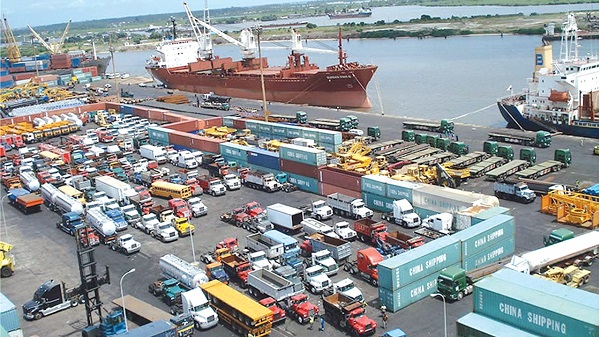It has emerged that it would cost the Nigerian Ports Authority (NPA) N3.6 billion to move more than 7, 500 overtime containers and other cargoes such as abandoned vehicles choking various seaports in the country. This is even as both the authority and Nigeria Customs Service (NCS) lack needed facilities to carry out the relocation.
Cargoes are classified as overtime when they have stayed in the terminal for 28 days without the importer or clearing agent coming up to clear them and take delivery. Also, it was learnt that it would require a lot in terms of logistics to hire haulage firms to move the cargoes from the seaports to government warehouse in Ikorodu Lighter Terminal (ILT).
Join our WhatsApp ChannelREAD ALSO: 7 Major Ports Powering Economies In Africa
To avoid litigation from importers, a maritime lawyer, Barrister Ebenezer Oladimeji, says there are laid down procedures for disposal of overtime cargoes that must be followed before they are auctioned. He pointed out that it would cost NPA about N400,000 to transfer a container out of the port to another destination due to fuel cost, traffic gridlock and extortion on the roads.
Oladimeji, while speaking with New Telegraph, noted that the NCS must first ensure that they receive unclaimed cargo lists from the shipping companies and the terminal operators, saying that the service would now examine those unclaimed cargo lists after the free storage period.
“After examination, they would leave it for a certain number of days for importers to come and claim their cargo. After the date expires, they will send it for gazetting by the court because of litigation, when the court gazettes it, it will now go for auction,” he said, adding that both the NPA and Customs were in dilemma of where to transfer the cargoes as ILT, which is already filled with unclaimed cargoes, has no capacity to accommodate them.
The maritime lawyer stressed that many importers deliberately abandoned their consignment because of various infractions such as concealment, false declaration among others. Oladimeji explained that importers, who could not pay storage rent of N10,000 on 40 feet container and N5,000 on 20 feet containers daily to government, have no option than to abandon their goods because of the prevailing harsh economy.
Meanwhile, the National Coordinator, 100 percent Compliance, National Association of Government Approved Freight Forwarders, (NAGAFF), Alh. Ibrahim Tanko, in Apapa, alleged that there were so many overtime cargoes at the port and terminals deliberately not being moved to government warehouse, taking up spaces in the ports, while NPA was complaining of lack of space. He said: “Why are they not being moved, why are these terminals holding unto these cargoes and complaining of lack of space? The overtime cargoes must be released to government warehouse.”
In June 2023, the Permanent Secretary, Federal Ministry of Transportation, Dr. Magdelene Ajani, led an inter-agency team comprising of NPA, Nigerian Customs Service (NCS) and the Nigerian Shippers’ Council (NSC) on assessment tour of overtime cargoes littering the ports, noting that Lagos and Tin Can Island ports and the terminals including Ikorodu Lighter Terminal (ILT) were filled with abandoned consignments.
The newspaper gathered that following the inspection tour, which held between June 23 and 24, 2023, an all-stakeholders sensitisation, involving shipping lines and freight forwarders and clearing agents associations, was convened on Monday June 26, 2023, where it was unanimously agreed that all cargoes and containers that have overstayed their required time at the ports be auctioned in their current locations and removed immediately from the ports.
To assure transparency and inclusiveness, the modalities to govern the auction process would be finalised by all stakeholders, after a similar sensitisation meeting with stakeholders in the eastern ports of Warri, Rivers, Onne and Calabar. The Managing Director of NPA, Mohammed Bello Koko, had at several fora sought the cooperation of NCS to ensure speedy removal of overtime cargo from the ports and terminal yards to free up space and preserve the durability of the capital intensive port infrastructure.


















Follow Us